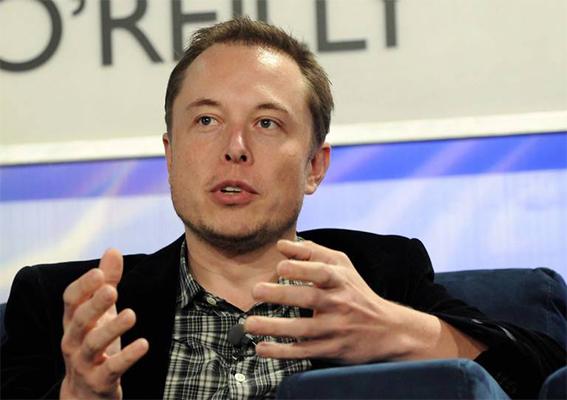Brands Taking Stands™ | Getting It Right
Brands Taking Stands™ Newsletter | August 1, 2018
THE BIG STORY
Brands Taking Stands: Getting It Right
The intersection of business and values has been the site of several collisions lately—some accidental, some accidents waiting to happen.
While the subjects in question have varied from CEO activism and governance to issues of ethics and data privacy, the end point is the same: In business 2018, values matter, more than ever. No company looking to its future viability can afford to avoid making choices—and statements—about what it stands for while avoiding pitfalls and misguided actions.
Taking the “right” positions in business can be as difficult as foreseeing future growth and profitability at a time of maximum political uncertainty and market disruption. The hard work of getting it right is illuminated by some recent examples of major companies getting it wrong in areas of major concern.
- CEO activism. A negative spotlight shone on Facebook’s Mark Zuckerberg, who defended the site’s publishing of posts by Holocaust deniers; Tesla’s Elon Musk who falsely name-called a rescuer of the cave-bound Thai boys; and Papa John’s founder and former CEO (now former chairman) John Schnatter, dismissed for racial slurs (he’s now suing for reinstatement to the board). The incidents highlighted the risks to an organization when the chief executive of a company is “the face” of the business. The brand reputation and share price of all three companies suffered—Facebook suffered a $120 billion drop in valuation when it announced the belated hiring of 20,000 new employees to deal with issues of fake news and privacy and projected declining revenue in a context of ongoing questions about the privacy of the data it collects.
- Ethics. Among brands taking a beating for governance failure was Ivanka Trump’s fashion line, which shut down among ongoing questions about using political status for personal gain—and after Hudson’s Bay Company announced that it would stop selling the line, joining major retailers Marshall’s, Nordstrom, and T.J. Maxx, which had previously discontinued it. Burberry was called out for burning $37 million worth of unsold products “to protect intellectual property,” a stance that drew criticism from politicians and shareholders, as well as environmentalists.
- Brand positioning. Washington hamburger chain Z Burger published a Twitter ad touting its burgers using an image of a US journalist moments before he was executed by ISIS terrorists. Everyone involved apologized.
- Operational stumbles. Google was fined $5 billion by the EU for antitrust violations. This follows last year’s EU fine of $2.7 billion fine levied against the company for manipulating search results. Twitter’s stock fell as the company purged thousands of what it admitted were fake accounts and reported fewer users.
These missteps by big brands are speed bumps, not barriers, to better practices. As Dr. Daniel Korschun has noted, “companies can’t avoid politics and shouldn’t try to.” That’s also the title of his Harvard Business Review article, co-authored with N. Craig Smith. “Business as usual now means including considerations of worldviews and values as well as the quality of products and services in strategic planning,” Korschun and Smith argue.
Mistakes are inevitable. As Korschun puts it, “Clearly, our often-divided political environment poses some danger for companies.” But he claims that there is no choice: “Executives who wish to respond fully to the needs of their stakeholders will need to embrace the new reality if they hope to succeed.” Transparency, consistency, materiality, leadership— a commitment to these qualities will determine the success of any purpose-driven company that stakes out clear positions on the issues of the day, from taking a stand on socio-political issues to internal practices, such as diversity and inclusion and employment engagement programs. Korschun elaborates on these ideas in an e-Book, Stand or Sit: Changing Roles of Companies & CR Directors in Politically Divisive Times, published by 3BL Media.
NEWS YOU CAN USE
Do Companies Really Need a “Head of Integrity”?
“Integrity and ethics are hot these days,” notes a recent Financial Times op-ed. For evidence to back her claim, author Brooke Masters, an FT editor, searched Glassdoor and found 426 postings for chief integrity officer jobs and 667 for ethics officers. “The trend has gathered pace in the past three to four years as local governments, charities and multinational corporations have taken to boasting that they have appointed a chief integrity officer or created an ethics office,” she concludes. While arguing that putting a high-level executive in charge is “a good way to demonstrate commitment,” she also cautions that such positions must be included in major decisions and be backed by business leaders to be effective.
Banks Establish New Methods to Assess Climate Change Risks and Opportunities
A group of 16 global banks has signed on to new methodologies to become more transparent about their exposure to climate-related issues that affect their operations. The initiative is based on input from a working group that is steering the Task Force on Climate-related Financial Disclosures (TCFD). The banks currently piloting the methodologies are ANZ, Barclays, BBVA, BNP Paribas, Bradesco, Citi, DNB, Itaú Unibanco, National Australia Bank, Rabobank, Royal Bank of Canada Santander, Société Générale, Standard Chartered, TD Bank Group, and UBS.
Banks will assess physical climate risks in their loan portfolios, evaluating the impacts on key credit-risk metrics. The forward-looking assessments offer longer-term insights that go beyond the usual stress-testing horizon of two-three years. The methodologies, published by the UN Environment Finance Initiative and Acclimatise, an advisory firm, in a report, Navigating a New Climate, focus on three climate-sensitive industry sectors: agriculture, energy, and real estate.
Standards Matter: Count the Ways
A company’s ethical achievements are increased eleven-fold when employees are encouraged to base their decisions on the values and standards of the business. That’s the key finding of new survey by the Ethics & Compliance Initiative, an alliance of organizations committed to business best practice. The ethics group lists the benefits of company programs that go beyond bare minimum standards of responsible conduct in the second installment of its Global Business Ethics Survey, a global benchmark for the workplace. It reports that high-quality ethics and compliance programs were remarkably empowering: “Never before in history have employees revealed just how much of an impact these programs have in their organizations. Simply put, organizational leaders should not be satisfied with a minimally constructed program as it’s well evidenced that any step taken towards high-quality performance provides a significant return on investment and an improved culture.”
C-SUITE COMMENTS
"Companies, and by extension their management teams and their CEOs, have a moral obligation to try to be a force for good. I don’t think there’s any way that we can shirk that responsibility, and I don’t think there’s any way to fully stand away from the culture wars around us. You have to take a stand. That stand shouldn’t be a political one. But it should be one that is based on your values and your mission.”
—Dan Schulman, president and CEO of PayPal, excerpted from “Corner Office,” NY Times
PEOPLE ON THE MOVE
Beth Ford has been named president and CEO of Land O’Lakes. She was previously the company’s COO. Prior to joining Land O’Lakes in 2011, Ford worked in executive operations management and supply chain roles at International Flavors and Fragrances, Mobil, Pepsico and Pepsi Bottling Company, and Scholastic. She has more than 20 years’ experience in the areas of technology and R&D across these four companies. Ford becomes the 25th female chief executive of a Fortune 500 company, and will be the third openly gay CEO of that exclusive group, and the first woman.
Jim Hunter will join Delos, a wellness real estate and technology firm, as chief technology officer. Hunter brings over 25 years of experience in transformative technology sectors – including specialized proficiencies in IoT and home automation. Prior to joining Delos, Hunter provided oversight for technology, architecture and innovation at Greenwave Systems; led Motorola/Google’s architecture and strategy for driving the future of the smart home; and shaped a powerful standards based platform as the Founder and Chief Architect of 4Home, Inc.
Want to receive this newsletter by email? Sign up here.
Continue the important conversations on corporate responsibility long after 3BL Forum with the Brands Taking Stands newsletter. Written by veteran journalist, John Howell, this newsletter is published every Wednesday morning.





